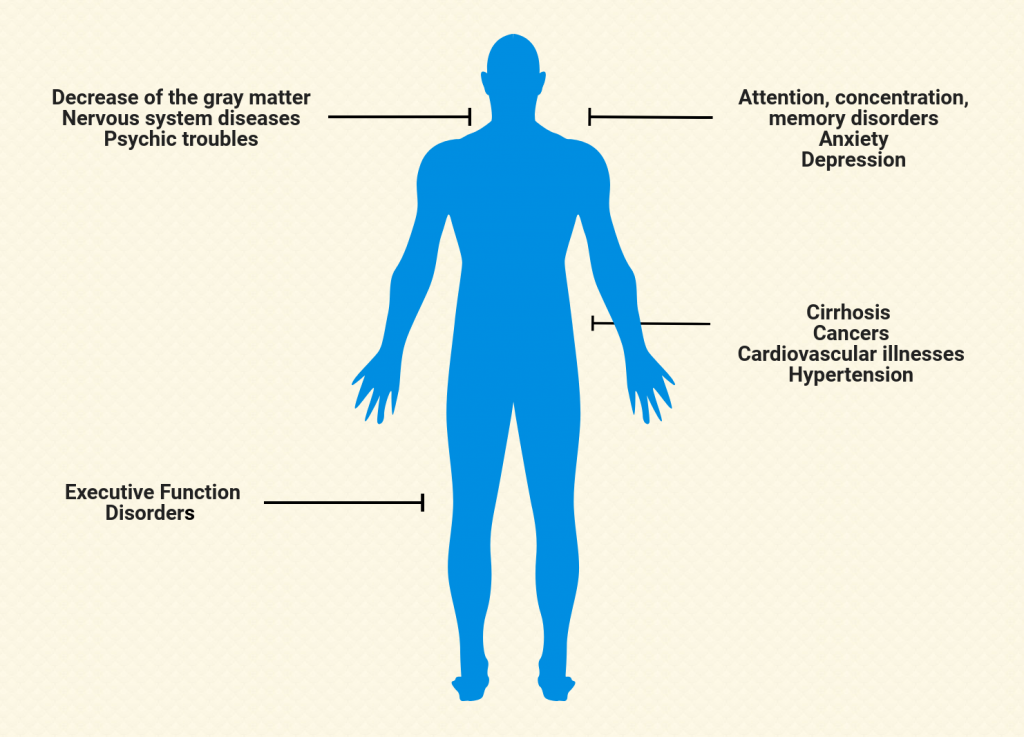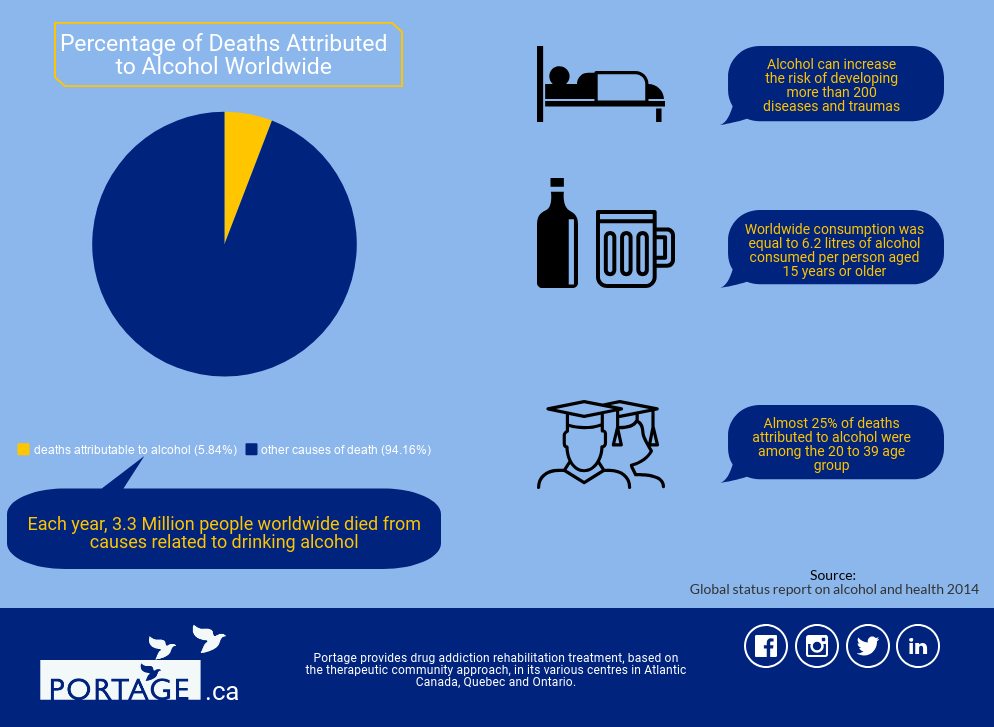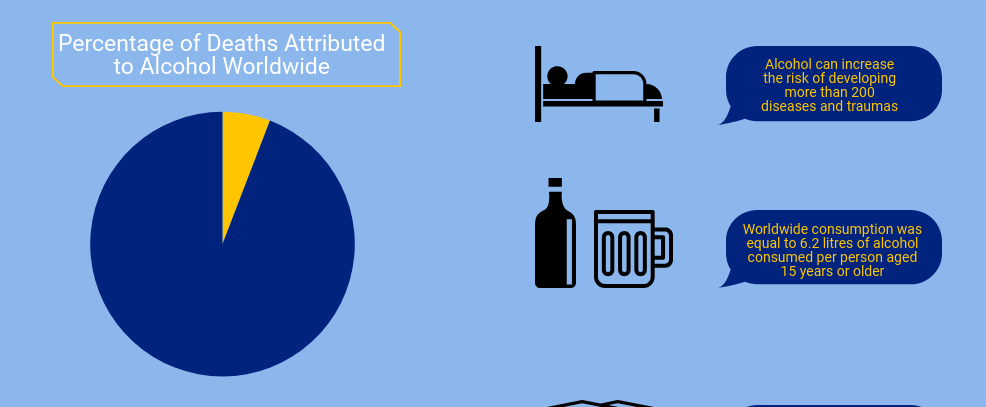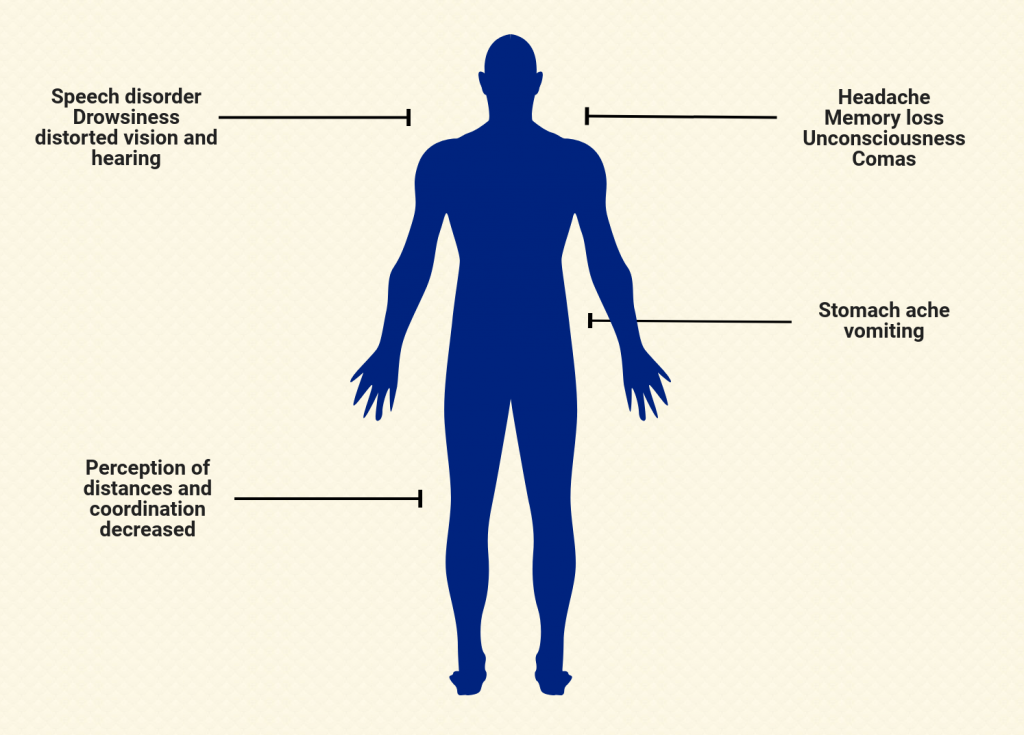Excessive alcohol consumption is a public health issue because it creates multiple social and health problems. In a 2012 report, the World Health Organization (WHO) estimated that alcohol was the third most important factor in mortality and morbidity in developed countries after smoking and high blood pressure.
Alcohol-Linked Issues
Alcohol is a psychoactive substance that can be highly addictive, yet it has been widely used in many cultures for centuries. Abusive drinking leads to an additional burden of mortality as well as an important economic and social burden for societies. In 2012, nearly 3.3 million deaths, or 5.9% of all deaths worldwide, were attributable to alcohol consumption.
This substance is associated with the risk of emerging health problems such as mental disorders, diseases such as liver cirrhosis, certain cancers and cardiovascular diseases, as well as trauma resulting from acts of violence and of traffic accidents. Lastly, the increase in alcohol consumption is linked to the evolution of AIDS (at-risk sexual behaviour) and can lead to pregnancies with complications such as premature newborns.
Alcohol Incidence Factors
Alcohol can affect each individual differently (read: Are We All Equal in the Face of Addiction?). Several factors come into play to determine how this substance can affect the body:
- The quantity absorbed
- The speed of absorption
- The amount of food previously ingested
- Sex and age
- Size and weight
- General health status (e.g., ill or under medication)
- Mood
Alcohol intake has significant behavioural and bodily effects. The effects of this substance are immediate and last several hours according to the various factors listed (read: 28 Benefits of Going Alcohol-Free for 28 Days).
Short-Term Effects
Alcohol has immediate effects, mainly on the brain, which manifest themselves a few minutes after consumption. The first symptoms are speech impairment, drowsiness, vision and distorted hearing, and finally, the perception of distances and coordination are diminished. These factors lead to an increase in the risk of a road accident by a factor of 8.
The short-term effects are also characterized by stomach aches, headaches, and vomiting due to excessive alcohol intake. In extreme cases, alcohol causes unconsciousness, breathing difficulties, memory loss or comas. In high doses, drowsiness evolves into loss of consciousness: this is called an ethyl coma. Blood pressure is low, respiratory frequency and body temperature decrease. Furthermore, the activity on brain function can lead the individual under the influence of alcohol to react in a more extreme or violent manner to a given situation. This is partly the reason why many assaults (injuries, beatings, sexual assaults and homicides) are committed while under the influence of alcohol. Moreover, when someone has been drinking, they are less able to defend themselves and, therefore, become more vulnerable to aggression.
Long-Term Effects
While alcohol has a strong propensity for dependence, its long-term consumption has many consequences on the body such as the development of diseases: cancers, cardiovascular and digestive diseases, diseases of the nervous system and psychological disorders.
Alcohol has a detrimental effect on the brain. Highlighted through medical imaging, long-term consumption decreases grey matter. It can also cause attention, concentration, memory, abstraction abilities and executive functions to be disturbed. In addition, psychological disorders such as anxiety and depression may occur. The abuse of this substance can trigger a depression and conversely, a depressed person may seek a way to extricate himself from his situation by way of alcohol.
The risk of contracting cardiovascular disease is also increased in a chronic consumer. Drinking on a regular basis elevates blood pressure and increases the risk of hypertension. It also promotes the risks of stroke and myocardial infarction.

Portage
The risk of developing an alcohol dependence is very high, especially among young people. Portage allows an adapted help thanks to the approach of the therapeutic community. It's not just about stopping addiction. It's about building confidence, self-respect, and tools to handle the challenges of everyday life without the use of drugs, whatever they are.








Leave a Reply